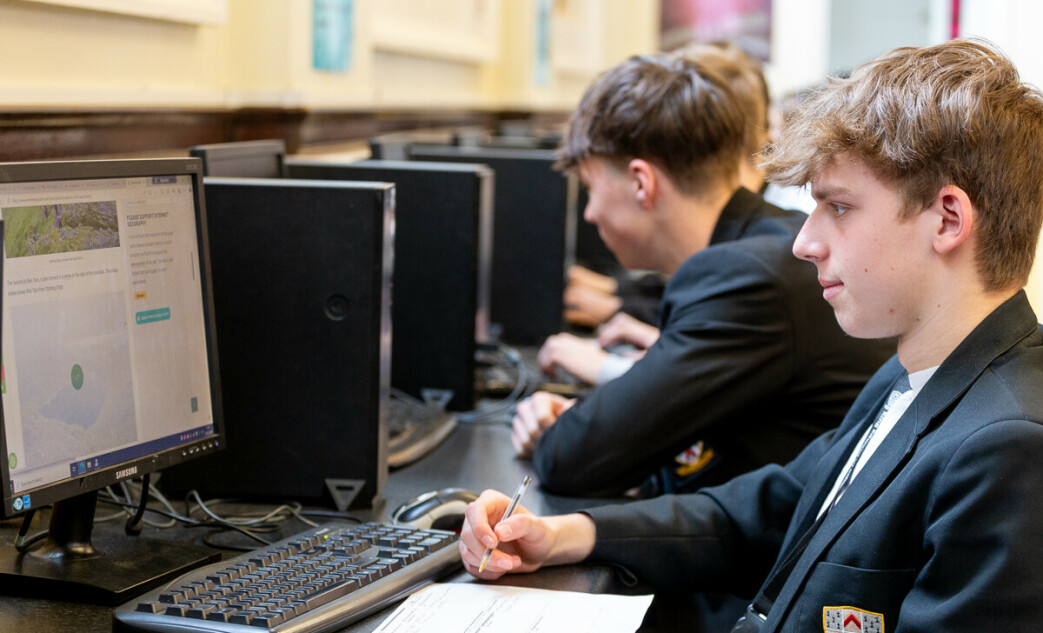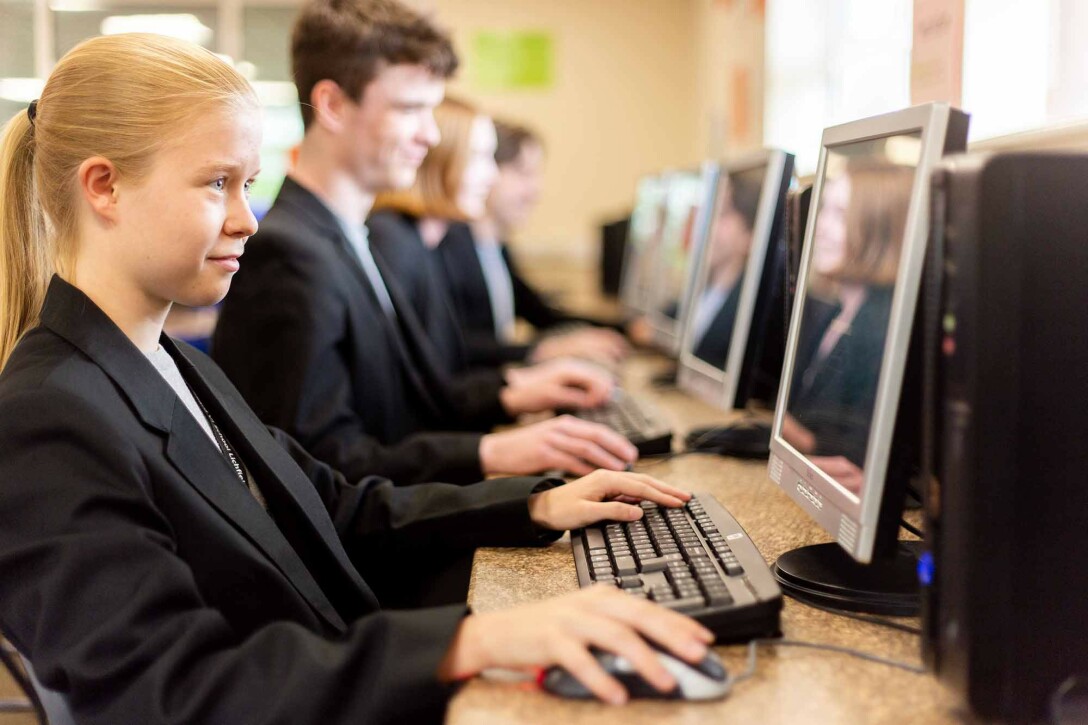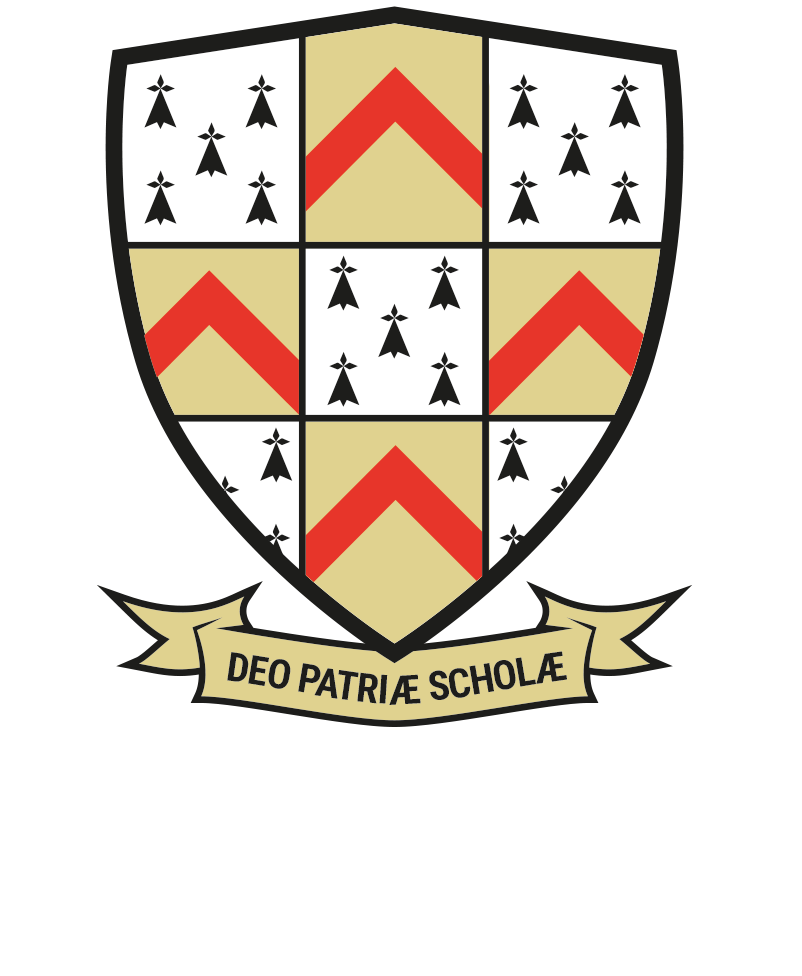ICT and Computing
Curriculum Overview
overall Intent
In an ever changing, technologically advancing society, it is necessary to equip our students with the desired skills needed for future life and work. With new technological jobs emerging that did not previously exist, it is vital that students are digitally literate, logical and adaptable thinkers who have the knowledge and skills to meet ever challenging and new demands of future society.
The national curriculum for computing has been developed to equip young people in England with the foundational skills, knowledge and understanding of computing they will need for the rest of their lives. Through the new programme of study for computing, they will learn how computers and computer systems work, they will design and build programs, they will develop their ideas using technology, and create a range of digital content.
We aim to develop digitally literate students who have an interest and enthusiasm for technology and the amazing things it can do and contemplate what it is yet to do.

Embedding Literacy
There are many key technological terms used throughout ICT and Computing, so it is important students have an awareness of them and their definitions.
Throughout the subject, there are occasions when students are asked to state, describe, explain and justify elements. Specific occasions include within the MicroPet, Scratch rides and reports, Sea Life Centre Apps and Adventure Quest Graphics projects.
In Key Stage 4 and 5 these skills are even more paramount within GCSE Media Studies and Cambridge Technicals Level 3 IT. Students research areas, prepare proposals for clients and then evidence projects meeting client needs. Students must be clear and articulate in evidencing their work. Staff model high standards of literacy to enable students to produce clear evidence.
Additionally, in use with all year groups are websites such as 'ictworkout' which tests knowledge of key words and concepts.
Digital Literacy is extremely important with emphasis on safe, effective web searching, analysis of bias and validity of sources and source recording.
Encouraging Independence
Students are encouraged to be independent and explore topics. There are many links to the outside world for students to see the relevance of ICT and Computing outside the classroom. Various materials are provided - ictworkout, teach-ict and also the iDEA award.
In addition, students in Year 10 are offered the Microsoft Office Specialist – MOS course – in after school sessions that offers an accredited qualification outside of normal curriculum time.
In Key Stage 3 we often have students in class who act as envoys, passing on their knowledge and skills.
Enrichment
Students are offered a wealth of opportunities at King Edward VI School, Lichfield.
In terms of educational visits there have been many trips organised from Harry Potter World to Disneyland Paris. Students visited the Emmerdale Studios in Leeds where they took part in a workshop ‘From Script to Screen’ which explores how a real life soap opera is produced from storyboarding through to camera angles and lighting.
Students in Year 10 also visited the National Science and Media Museum in Bradford where they took part in an animation workshop looking at the production of Claymation. There were also exhibits on the growth of the internet and digital developments. In addition, developments in TV, Photography and the use of IT in Sport.
Year 12 visited Lichfield Cathedral for a talk from a guest lecturer at Keele University on Artificial Intelligence and they took part in a debate on emerging forms of AI, whilst Year 13 visited East Midlands Airport and tested Air Traffic Control Simulation systems.
As the Cambridge Tec Level 3 course involves a degree of ‘Meaningful Employer Involvement’ there are many opportunities to embrace this. Guest speakers have included Internet Radio DJs, Web Developers and a Senior Flood Risk Specialist. Clients for projects have included Five Spires Academy, Staffordshire Young Teem Fiction, Ginger Pickles Bakery and Nuffield Health.
This is an ongoing initiative and staff are always on the lookout for opportunities to enhance real world experiences and links.

Competitions
Within the subject there are many competitions/experiences students can take part in across all year groups.
Students in all years take part in the Bebras competition, sponsored by Oxford University, trying out their computational thinking skills on progressively challenging puzzles.
The Top 10% go through to The Oxford University Computing Challenge (OUCC) which involves a series of progressively challenging programming tasks.
Students from Years 8 - 13 enrol on the iDEA Award. A relatively new initiative to rival the Duke of Edinburgh but in digital form. Year 8 and 9 have been allocated badges to complete at home which tie in with the topics studied each term.
Students will also take part in the Codementum competition. One of our Year 8 classes was fortunate to come 2nd in the European Coding competition in October 2023.
Many in-class activities reflect key world events and experiences, and there is always an emphasis on careers and the world of work.
Staff
The following members of staff form the ICT and Computing department at King Edwards:
| Staff Member | Job Title |
|---|---|
| Miss S Burton | Head of Department |
| Mr J Noakes | Teacher of ICT and Computing |
Further Information
Use the following sites for further information about staying safe online and coding:
| Website | Link |
|---|---|
| BBC - Own it | https://www.bbc.com/ownit |
| Idea | https://idea.org.uk |
| Code Avengers | http://www.codeavengers.com |
| Code | http://code.org |
| Code Academy | http://www.codecademy.com |
| W3 Schools | http://www.w3schools.com |
| Scratch | https://scratch.mit.edu |
| Kodu Game Lab | http://www.kodugamelab.com |

